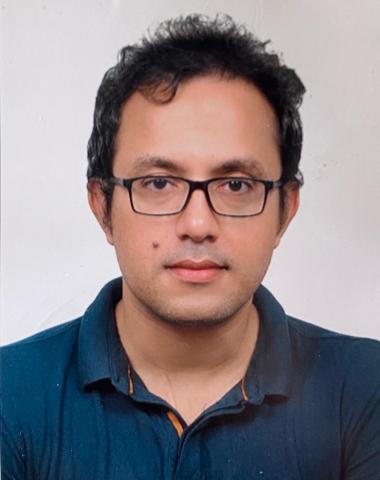E. Lec. (24): Literary & Memory Studies: Interdidciplinary Reseacrh Possiblities

The Department of English organized the twenty fourth in its series of virtual Enrichment Lectures on 12 January 2022 with Dr. Avishek Parui from IIT, Madras, on “Literary & Memory Studies: Interdisciplinary Research Possibilities .”
The session began in full throttle as Prof. Parui gave the audience insight into the bifurcation of memory models based on brain behavior and cultural behavior and how his research is located on the interface of these two. He then elicited the role of literature and its fluid functionality which is capable of inhabiting both the models via techniques such as interior monologues, streams of consciousness et cetera. He dovetailed it with an understanding of how imagination is a crucial component of cognitions of both models and forms a great representational matrix historically, institutionally, and organizationally. On an ironic note, he shared how ‘forgetting’ is explored the most in Memory studies and viewed as an active phenomenon instead of a passive one. He emphasized that forgetting and remembering aren’t ontologically opposite, they’re complementary and our brain is wired to forget because the absence of forgetting, empathy, abstraction, imagination, all get compromised. He believes that the concept of ‘Total recall’ is a myth and that human memory is unreliable. It is an interplay of remembering and forgetting, imagination and fact.
Dr. Parui then expounded on ‘fiction’ as an ontological medium between realities and possibilities. Citing examples of authors like Gabriel Garcia Márquez and Salman
Breaking down Memory more technically, he talked of the process involving three steps, namely, ‘Encoding’, ‘Consolidation’ and ‘Retrieval’. The brain retains some bits of experiences but leaves bits as well and that is exactly what puts it on the threshold of Liminality. A major segment of the lecture was devoted to the discussion of the semi-fictional Partition literature and the erasure of atrocities against brown communities. Geography is not only physical but also mental and psychological in nature when analyzed in the light of longing and belonging. Encouraging students to read works like Toba Tek Singh and The Book of Laughter, he defined forgetting as an act of oblivion, suppression, and culture.
By sharing a personal anecdote, Dr. Parui acquainted the audience with the massive gap of the greatest tragedies of the Indian subcontinent in the documented and prescribed History. Over the years, he has found that there are almost negligible mentions of ‘The Jallianwala Bagh
The session was concluded by an extensive multi-disciplinary Q&A that explored the integration of AI and humans in the future, types of memory and its agents of documentation, shaping and reshaping of objective history, and a plurality of possibilities. He also commented on how the ability to socially and existentially empathize through Freudian Discourse. He also talked of his admiration of Joseph LeDoux and his exploration of anxiety. The lecture came to an end as students and faculty members expressed their gratitude and admiration for the all-encompassing knowledge and research of Dr. Parui and their keenness towards future interactions.

